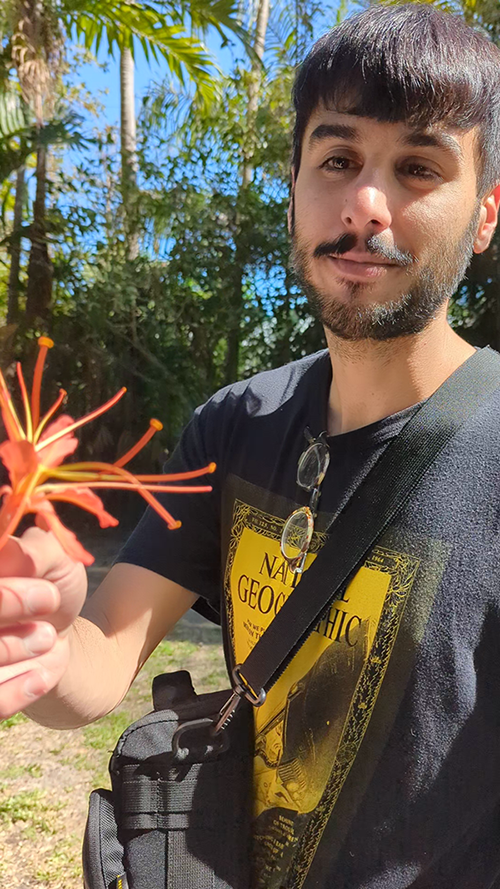Ashkaan Fahimipour
Education
- Ph.D., University of California Riverside, 2015
Research Interests
-
Community ecology
-
Networks
-
Data science
-
Mathematical modeling of ecosystems
Research Description
I am a community ecologist who combines tools from data science and physics to understand and model complex ecosystems of interacting organisms, and how they respond to perturbations. My research is interdisciplinary and I work in a range of habitats – from freshwater ponds, coastal marine communities, and coral reefs to urban ecosystems – and with taxa as diverse as fish, bacteria, and arthropods. My work shifts strategically between math modeling to advance theories for ecological networks; the development and application of data science tools to make sense of big ecological data; and experiments that probe expectations from theory, typically in conjunction with technologies like computer vision. I am primarily interested in uncovering the organizational principles linking ecosystems across scales: from individuals’ traits, to the behaviors of groups, dynamics of interactions, the structure of ecological networks, and the emergence of macroscopic spatial patterns.
Recent Publications
-
Fahimipour, A. K., Gil, M. A., and Hein, A. M. (2025). Behavioral plasticity and the valence of indirect interactions.
Ecology, in press.
bioRxiv,
doi.org/10.1101/2024.08.15.608151.
-
Fahimipour, A.K., Gil, M.A., Celis, M.R., Hein, G.F., Martin, B.T., and Hein, A.M. (2023). Wild animals suppress the spread of socially transmitted misinformation.
Proceedings of the National Academy of Sciences,
120(14), p.e2215428120.
-
Fahimipour, A. K., Zeng, F., Homer, M., Traulsen, A., Levin, S. A., and Gross, T. (2022). Sharp thresholds limit the benefit of defector avoidance in cooperation on networks. Proceedings of the National Academy of Sciences, 119(33), e2120120119.
-
Martin, B. T., Gil, M. A., Fahimipour, A. K., and Hein, A. M. (2022). Informational constraints on predator–prey interactions.
Oikos,
2022(10), e08143.
-
Fahimipour, A. K., and Gross, T. (2020). Mapping the bacterial metabolic niche space. Nature Communications, 11(1), 1-8.
-
Fahimipour, A. K., Levin, D. A., & Anderson, K. E. (2019). Omnivory does not preclude strong trophic cascades. Ecosphere, 10(7), e02800.
-
Fahimipour, A. K., and Anderson, K. E. (2015). Colonisation rate and adaptive foraging control the emergence of trophic cascades. Ecology Letters, 18(8), 826-833.
Scholarly Activities
